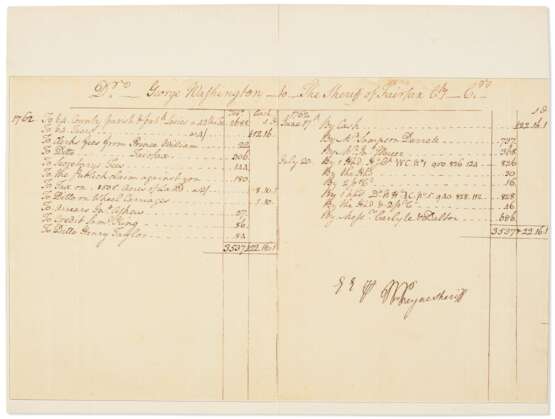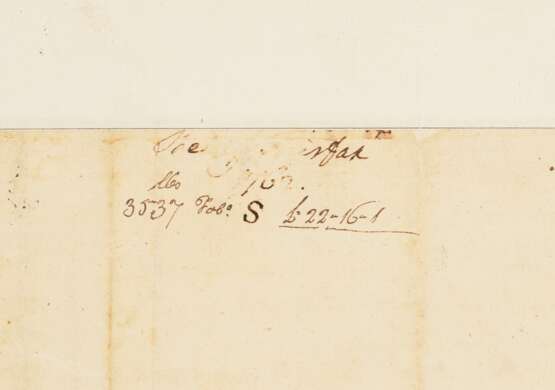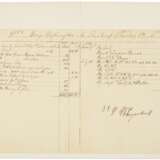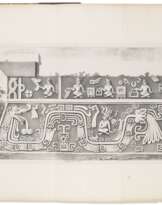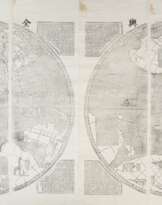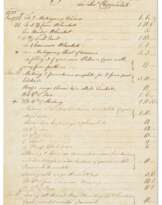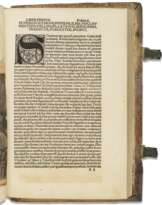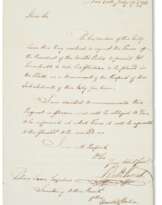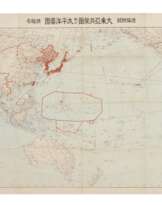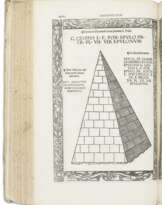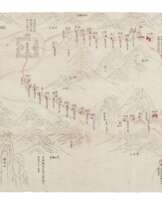ID 627667
Lot 178 | Settling accounts with William Payne, Fairfax County Sheriff
Estimate value
$ 5 000 – 8 000
One page, 196 x 328mm, laid into a larger sheet (minor loss at top margin affecting docket on verso). Signed by William PAYNE(1725-1782) as Sheriff of Fairfax County.
George Washington settles his taxes with Fairfax County Sheriff William Payne with whom he nearly fought a duel in 1755. A fascinating document drafted entirely in Washington's hand detailing his accounts with Payne in his capacity of Sheriff of Fairfax County. The account, denominated in cash as well as tobacco (presumably by the pound), covers Washington's taxes, including "8505 Acres of Land" as well as a tax "on Wheel Carriages." Other entries include "County parish & pub[lic]k Levies … Clerks fees from Prince William … Ditto… Fairfax," "Secretarys Fees" as well as "the Publick Claim against you." The account was settled, largely in tobacco, to Payne's satisfaction.
William Payne figured prominently in Washington's early life. In 1755, Payne famously struck down Washington with a stick after a heated argument over their support of rival candidates for the Virginia House of Burgesses. In response, Washington asked Payne to meet him the next day—presumably to engage in a duel. "Instead of renewing the argument or demanding satisfaction, Washington kept his pride under leash and frankly apologized because, he said, he was in the Wrong." (Southern 2:146). Impressed by this display of humility, Payne accepted the apology and the pair became close, serving as vestrymen for Truro Parish. Payne's eldest son served as a pallbearer at Washington's funeral.
| Artist: | William Shakespeare (1564 - 1616) |
|---|---|
| Applied technique: | Pencil |
| Artist: | William Shakespeare (1564 - 1616) |
|---|---|
| Applied technique: | Pencil |
| Address of auction |
CHRISTIE'S 8 King Street, St. James's SW1Y 6QT London United Kingdom | |
|---|---|---|
| Preview |
| |
| Phone | +44 (0)20 7839 9060 | |
| Buyer Premium | see on Website | |
| Conditions of purchase | Conditions of purchase |
